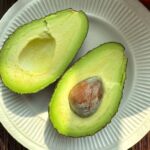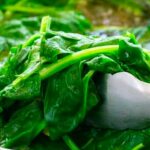6 Vegetables and Fruits You Shouldn’t Juice
– Broccoli
Broccoli is one of those vegetables that you shouldn’t juice. While it’s low in calories, it’s packed with vitamins C, K1, potassium, and manganese. However, juicing raw broccoli wastes a significant amount of its fiber. Additionally, drinking broccoli juice can cause digestive issues such as bloating, nausea, and upset stomach.

Broccoli, kale, and spinach are among the vegetables not suitable for juicing.
– Kale and Spinach
These two leafy greens are popular choices for juicing, but they contain high levels of oxalates, which are anti-nutrients. Consuming oxalates in high concentrations can have adverse effects on your health. They can react with calcium and lead to the formation of kidney stones.
– Avocado
Avocados are better suited for smoothies than juicing. You won’t get much juice out of this creamy fruit.
– Pineapple
Pineapple is sweet and fragrant, packed with vitamins and minerals. While eating pineapple is beneficial, you should avoid juicing it. Juicing pineapples wastes a lot of its nutrients, losing precious fiber, and leaving behind a high concentration of sugar. Pineapple juice can cause a rapid spike in blood sugar levels, leading to a significant increase in insulin levels. Consuming large amounts of pineapple juice over an extended period can increase the risk of diabetes.

Avoid juicing pure pineapple due to its high sugar content. Similarly, do not juice oranges and tangerines with their peels as the compounds in the peels can negatively affect digestion.
– Oranges and Tangerines with Peels
Some people put whole oranges or tangerines, including the peels, into their juicers. However, the peels of these citrus fruits contain compounds that can irritate the digestive system. They also contain high amounts of essential oils, which can result in a bitter-tasting beverage.
Side Effects of Vegetable and Fruit Juices
– Low Fiber Content
Juicing vegetables and fruits wastes most of the fiber found in these foods. Fiber is crucial for a healthy diet. It helps regulate blood sugar, blood pressure, and cholesterol levels, and it’s essential for digestive health. The juice doesn’t contain enough fiber to replace the whole fruits and vegetables in your diet.
– Blood Sugar Spike
People with diabetes or conditions that affect blood sugar control should be cautious about consuming juices. Juices are low in fiber and protein, which help balance blood sugar levels.
While juices made from vegetables with low carb content usually don’t affect blood sugar, fruit juices are different. They contain high levels of natural sugar and lack fiber, which can lead to a spike in blood sugar levels.
– Potential Kidney Damage
Some vegetables contain oxalic acid or oxalates, which are types of anti-nutrients. They can bind to minerals in foods, hindering their absorption by the body.
Consuming oxalates from whole vegetables (including the fiber) typically doesn’t cause harm. However, the story changes when it comes to juice. The oxalate content in juices is usually high because the fiber has been removed. Consuming large amounts of this compound can lead to kidney stone formation and, over time, kidney damage.
The Secret to Post-Holiday Beauty: How Mrs. Công Lý Stays Slim and Ageless with a Unique Superfood Cocktail
Introducing the post-holiday meal that has everyone talking – and it’s not just about the food. Ngoc Ha, the renowned actress and wife of NSND Cong Ly, has wowed audiences with her post-Tet meal that focuses on health and wellness. With her exquisite taste and expertise in nutrition, Ha has crafted a meal that is not only delicious but also helps maintain a healthy figure. This refreshing take on post-holiday dining is a testament to Ha’s talent and dedication to her craft, leaving audiences inspired and eager to follow in her footsteps.






































